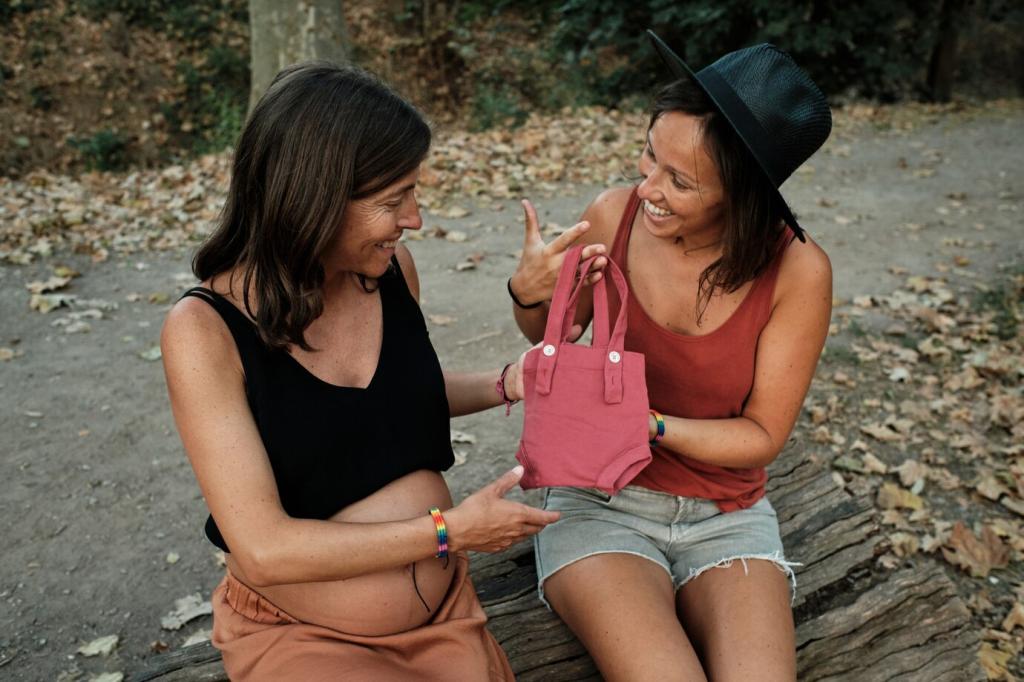
Eco-Friendly Wardrobe Essentials
Explore the path to a more sustainable lifestyle by transforming your wardrobe with eco-friendly essentials. The fashion industry is evolving, and conscientious choices can make a significant impact on both the environment and your personal style. This guide delves into sustainable fabrics, ethical clothing brands, mindful shopping habits, and more. By embracing eco-friendly wardrobe essentials, you can reduce your carbon footprint, support ethical industries, and look great doing it. Whether you’re a fashion enthusiast or just starting your journey toward conscious consumption, this resource offers practical advice and inspiration for a greener wardrobe without compromising on versatility or style.
Sustainable Fabrics for Everyday Wear
Organic Cotton Comfort
Organic cotton is cultivated without the use of harmful pesticides or synthetic fertilizers, ensuring a reduced ecological footprint compared to conventional cotton. This fabric is not only gentler on the environment but also on your skin, making it perfect for everyday essentials such as t-shirts, undergarments, and sleepwear. The absence of chemicals during production results in softer, more breathable textures, ideal for sensitive skin. As demand for organic cotton grows, more brands are offering stylish pieces that do not compromise on durability or comfort. Investing in organic cotton clothing supports healthier agricultural practices and safeguards the well-being of farmers and surrounding ecosystems.
Linen’s Lightweight Breathability
Linen is renowned for its breathability and lightweight comfort, making it the perfect addition to any eco-friendly wardrobe—especially in warmer climates. Derived from the resilient flax plant, linen requires far less water and chemicals during cultivation than cotton. Its natural properties make it hypoallergenic, quick-drying, and highly durable, allowing linen pieces to withstand years of regular wear. The timeless appearance of linen clothing, characterized by an understated sophistication, ensures that these garments remain stylish season after season. Transitioning to linen not only elevates your comfort but also demonstrates a commitment to sustainable and responsible fashion.
Tencel’s Modern Innovation
Tencel, a branded lyocell fabric, is a cutting-edge material crafted from sustainably sourced wood pulp—most commonly eucalyptus, beech, or spruce trees. The closed-loop manufacturing process recycles water and solvents, which drastically reduces environmental waste. Tencel’s silky smooth finish and moisture-wicking capabilities have made it a preferred choice for eco-conscious activewear, business attire, and even luxury apparel. Its versatility means that you can enjoy high-performance clothing without compromising on planet-friendly values. Choosing Tencel garments not only signals modern style but also active participation in the movement toward responsible fashion innovation.

Previous
Next
Ethical Clothing Brands
Ethical brands distinguish themselves by providing humane working conditions and fair wages to their workers, often exceeding industry norms. This commitment is essential in addressing the fashion industry’s legacy of exploitation. By supporting companies that emphasize ethical labor, consumers help ensure that garments are not only sustainable but also ethically produced. Many leading brands openly share their manufacturing processes, factory locations, and wage standards, welcoming scrutiny and fostering consumer trust. Choosing such brands aligns your wardrobe with values of dignity and justice for every individual involved in creating your clothing.
Prioritizing Versatility
Versatility is key when curating an eco-friendly wardrobe. Prioritizing adaptable pieces that can transition seamlessly from casual to formal settings reduces the need for excess clothing. Selecting neutral colors and timeless silhouettes enables you to mix and match fewer items, resulting in endless outfit options without overburdening your closet. Thoughtful selection leads to a wardrobe that remains functional through changing trends and seasons. Investing in versatile staples sets the foundation for mindful fashion choices, allowing you to maximize the value and longevity of every garment.
Investing in Quality
Focusing on quality over quantity is foundational to mindful shopping. High-quality clothing endures regular use and multiple washes, minimizing the need to frequently replace items. Well-constructed garments not only feel better but also age gracefully, developing character and comfort over time. Understanding fabric characteristics, stitching, and finishing helps in selecting pieces that will stand the test of time. Investing in durable essentials, even at a higher initial cost, pays dividends by reducing overall consumption and waste. Such an approach resonates with the principles of thoughtful and eco-friendly living.
Embracing Secondhand Shopping
Purchasing pre-owned clothing is one of the most impactful ways to make wardrobe choices eco-friendly. Thrift stores, consignment shops, and online resale platforms offer access to high-quality items with character and history. Wearing secondhand reduces demand for new production, conserves resources, and extends the useful life of garments already in circulation. Additionally, it introduces unique pieces into your wardrobe, allowing for personal expression and creativity. By embracing the secondhand market, you join a community committed to reducing fashion waste and celebrating sustainable style.
The Capsule Wardrobe Approach
Building with Core Pieces
A sustainable capsule wardrobe centers around core pieces that form the backbone of your style. These essentials, such as a classic white shirt, tailored trousers, and a versatile dress, lay the groundwork for countless outfit combinations. The emphasis is on selecting items that fit well, reflect your personal taste, and demonstrate versatility across various occasions. By carefully curating foundational garments, you reduce the urge for impulsive purchases, ultimately cultivating a wardrobe that’s both practical and eco-conscious.
Seasonal Rotation and Reassessment
Seasonal wardrobe rotation ensures that clothing is worn and appreciated rather than forgotten at the back of a closet. As the weather shifts, revisit your capsule collection to assess which items warrant storage and which are best suited for the coming months. This process prevents clutter and compels you to evaluate the continued relevance and condition of each garment. By routinely reassessing, you maintain a balanced wardrobe, extend the life of your essentials, and identify thoughtful ways to address any functional gaps in your collection.
Purposeful Accessorizing
Accessories in a capsule wardrobe are selected with as much intention as the clothing itself. Choosing ethically-made accessories, such as handcrafted jewelry or vegan leather belts, enhances outfits without compromising on sustainability. Scarves, hats, and shoes should meld seamlessly with multiple looks, supporting the capsule philosophy of ‘less is more.’ Purposeful accessorizing allows you to refresh your style without adding unnecessary pieces, fostering creativity while upholding environmental values. The right accessories serve as finishing touches that unite the wardrobe and reinforce a commitment to mindful fashion.

Washing in Cold Water
Opting for cold water washes dramatically reduces the energy required for laundry, as heating water accounts for a large portion of household electricity use. Cold water is gentle on fabrics, especially delicate ones like wool and Tencel, preventing premature wear and color fading. Modern detergents are engineered to work effectively at lower temperatures, ensuring that cleanliness is not compromised. This simple habit is not only environmentally friendly but also decreases fabric deterioration, thereby extending the lifespan of your wardrobe essentials for years to come.

Air Drying Over Machine Drying
Air drying clothes is a time-tested technique that conserves energy and protects garments from the harsh tumbles of a dryer. Fabrics like organic cotton, linen, and bamboo especially benefit from air drying, maintaining their natural texture and strength. While machine drying offers convenience, it accelerates wear and shrinkage, shortening garment life and increasing long-term demand for replacements. By hanging clothes to dry indoors or outdoors, you cut utility costs and lower your carbon footprint, all while keeping your eco-friendly pieces looking newer for longer.

Using Gentle, Eco-Friendly Detergents
Selecting natural or biodegradable detergents reduces the chemical load on both your clothes and the environment. Conventional laundry products often contain harsh substances that break down fibers, strip colors, and pollute waterways. Eco-friendly alternatives are formulated from plant-based ingredients that clean effectively without leaving a harmful residue. Using gentler detergents is especially crucial for sustainable fabrics, which can be more sensitive to aggressive chemicals. Over time, this practice helps clothes maintain their integrity and soft feel while supporting healthier freshwater ecosystems.
Previous slide
Next slide

Previous slide
Next slide
